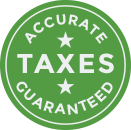IRS Begins Correcting Tax Returns
The IRS will begin issuing refunds this week to eligible taxpayers who paid taxes on 2020 unemployment compensation that the recently-enacted American Rescue Plan (ARP) later excluded from taxable income. These corrections are being made automatically in a phased approach. The first phase of adjustments is being made for single taxpayers who had the simplest…
Employee Retention Credit – Expanded Eligibility
The Employee Retention Credit (ERC) offered relief to certain employers affected by COVID-19 in 2020, in the form of a fully refundable federal payroll tax credit. It was later extended to all four quarters of 2021, with certain changes – most notably the fact that Paycheck Protection Program (PPP) loan recipients can now claim these…
Guidance for American Rescue Plan
The IRS is reviewing implementation plans for the newly enacted American Rescue Plan Act of 2021. Additional information about a new round of economic impact payments, the expanded child tax credit, including advance payments, and other tax provisions will be made available as soon as possible. The IRS strongly urges taxpayers not to file amended…
President to sign American Rescue Plan Act of 2021
The House and Senate have just passed the American Rescue Plan Act (ARP) and shortly the president is expected to sign it into law. This bill includes many provisions that have major tax impacts for 2020 and 2021 tax returns. 2020 tax-free unemployment benefits Initially, the bill didn’t include retroactive tax provisions, but during the…
Educators can now deduct out-of-pocket expenses for COVID-19 protective items
Eligible educators can deduct unreimbursed expenses for COVID-19 protective items to stop the spread of COVID-19 in the classroom. COVID-19 protective items include, but are not limited to: face masks; disinfectant for use against COVID-19; hand soap; hand sanitizer; disposable gloves; tape, paint, or chalk to guide social distancing; physical barriers (for example, clear plexiglass);…
Church employee is diagnosed with COVID-19 – What now?
As COVID-19 infection rates continue to climb, it’s imperative that churches respond quickly when an employee is diagnosed. Here are the steps employers should take: Notify Employees Employees should be notified of potential exposure in the workplace, but they should not be told who is sick. Employees won’t like that they can’t gauge their own…
Five Tips for Managing Your Church Budget During the COVID-19 Crisis
None of us could have anticipated what this spring was going to be like when 2020 church budgets were being prepared last summer or fall. Yes, we are in unfamiliar territory. Two-thirds of self-identified church leaders say giving to their churches has dropped significantly since the COVID-19 pandemic became widespread nationwide in March—with sizable numbers…
CARES Act allows for coronavirus-related distribution from retirement
As the pandemic continues, many will experience economic hardship due to medical bills or due to a lost job. The CARES Act of 2020 provides some relief by allowing individuals to draw up to $10,000 from their retirement with minimized tax consequences. In order to qualify, you must meet one of the following criteria: Be…
4 reasons churches shouldn’t rush their PPP forgiveness applications
Churches who received Paycheck Protection Program (PPP) loans under the Coronavirus Aid, Relief, and Economic Security (CARES) Act will soon be asking if and how they will qualify for PPP loan forgiveness. There is uncertainty over some of the program details. While you may be anxious to apply for forgiveness, here are five factors affecting the…
What do we do if an church employee is diagnosed with COVID-19?
First, notify other employees of potential exposure, if any, in the church and congregation. You should tell them that someone was diagnosed with the illness, but you should not identify which employee is sick, even if employees ask so they can gauge their own risk. Medical information, such as a diagnosis, must be kept confidential….






